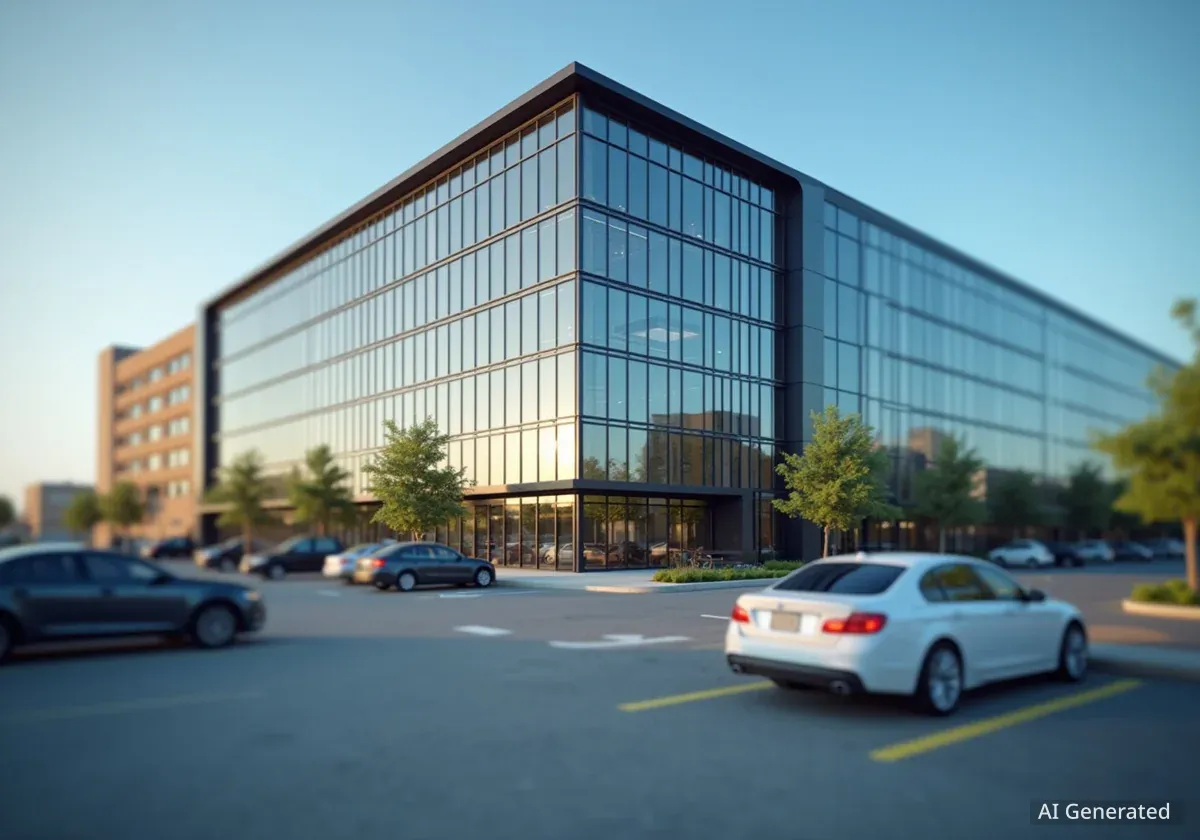Benenson Capital Partners, a New York-based real estate investment firm, has acquired a freestanding Whole Foods Market in the Chicago suburb of St. Charles, Illinois. The property, located at 300 S. Second St., was purchased for $17.3 million.
The transaction highlights continued investor interest in high-quality, single-tenant retail properties occupied by essential businesses like grocery stores. The seller was Swanson Development Group, the original developer of the site.
Key Takeaways
- Transaction: Benenson Capital Partners purchased a Whole Foods Market in St. Charles, Illinois.
- Price: The acquisition was completed for $17.3 million.
- Property: The asset is a 45,000-square-foot grocery store that opened in 2021.
- Lease: Whole Foods Market has a long-term, triple-net lease on the property, providing stable, long-term income.
- Brokers: JLL Capital Markets represented the seller, Swanson Development Group, in the deal.
Details of the Acquisition
The sale of the St. Charles Whole Foods Market marks a significant retail investment in the western suburbs of Chicago. Benenson Capital Partners, a privately held company with a long history in real estate, added the grocery store to its diverse national portfolio.
The seller, Swanson Development Group, is a local developer responsible for the broader mixed-use project where the store is located. The transaction was handled by the JLL Capital Markets team, which specializes in retail investments.
Who Was Involved
The JLL team representing the seller included Senior Managing Director Alex Sharrin, Director Mohsin Mirza, and Capital Markets Analyst Torri Rosene. Their involvement underscores the high-profile nature of the asset in the regional investment market.
The purchase price of $17.3 million reflects the strong value placed on properties with long-term leases to creditworthy tenants like Whole Foods, which is a subsidiary of Amazon.
Property and Location Profile
The Whole Foods Market is a modern, 45,000-square-foot building constructed in 2021. It serves as a key anchor for the First Street development, a vibrant mixed-use district in downtown St. Charles.
St. Charles is an affluent suburb situated approximately 40 miles west of downtown Chicago in Kane County. The area is known for its strong demographic profile, with high average household incomes that support retailers like Whole Foods.
The First Street Development
The grocery store is part of a larger, carefully planned urban project that includes:
- Retail shops
- Restaurants
- Office space
- Public plazas
This integrated environment creates a steady flow of foot traffic and establishes the Whole Foods as a central amenity for residents and visitors. The store's location benefits from high visibility and easy access for the surrounding community.
Property at a Glance
- Address: 300 S. Second St., St. Charles, IL
- Building Size: 45,000 square feet
- Year Built: 2021
- Tenant: Whole Foods Market
- Lease Type: Long-term, triple-net (NNN)
Investor Appeal of Grocery-Anchored Assets
The acquisition is consistent with a broader trend in commercial real estate where investors are prioritizing assets with reliable, long-term income streams. Grocery stores have proven to be particularly resilient, even during economic downturns and the rise of e-commerce.
Properties with long-term, triple-net (NNN) leases are especially sought after. In a NNN lease, the tenant is responsible for paying property taxes, insurance, and maintenance costs, which significantly reduces the landlord's operating expenses and management responsibilities.
"Single-tenant grocery stores with long-term leases are among the most sought-after asset types in the current market," noted a JLL representative in a statement about the transaction. "Their stability and the creditworthiness of tenants like Whole Foods provide a secure investment, especially in times of economic uncertainty."
According to market analysis, the demand for grocery-anchored retail centers has remained robust. These properties often serve as daily-needs destinations, making them less susceptible to online competition compared to other forms of retail.
The Chicago Suburban Retail Market
The Chicago metropolitan area's suburban retail market continues to attract national investors. Affluent submarkets like St. Charles offer a compelling combination of population density and high disposable income.
The presence of a premium grocer like Whole Foods is often seen as a catalyst for further development and value appreciation in the surrounding area. It draws in other high-quality retailers and services, enhancing the overall appeal of the commercial district.
This transaction by Benenson Capital Partners demonstrates confidence in both the long-term viability of brick-and-mortar grocery retail and the economic stability of Chicago's western suburbs. The firm's portfolio includes a variety of single-tenant and multi-tenant retail, office, and residential properties across the United States.





